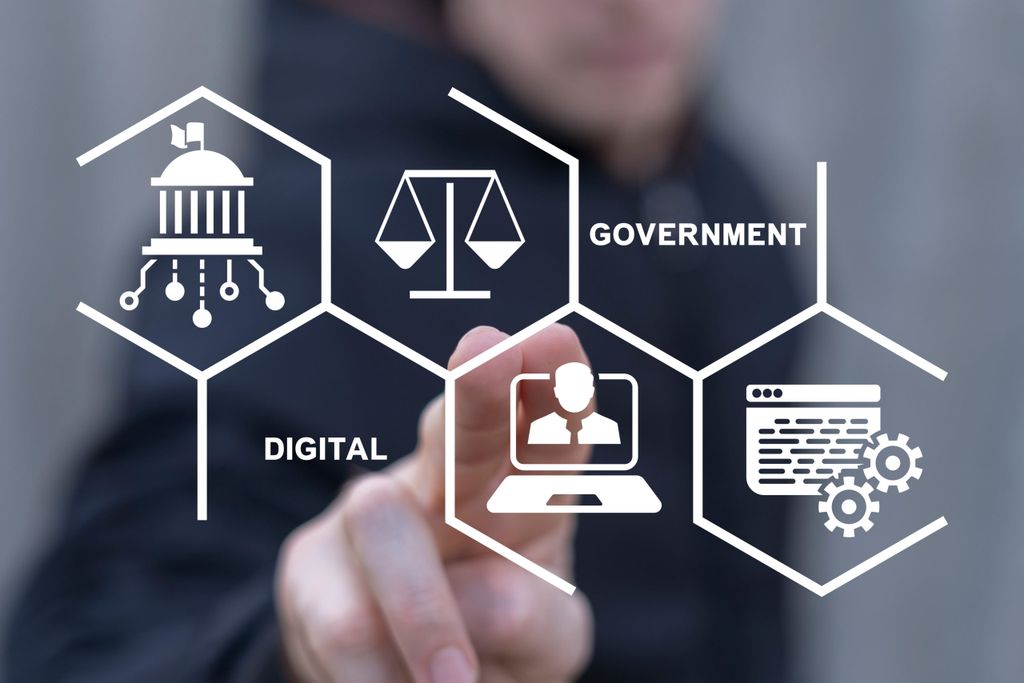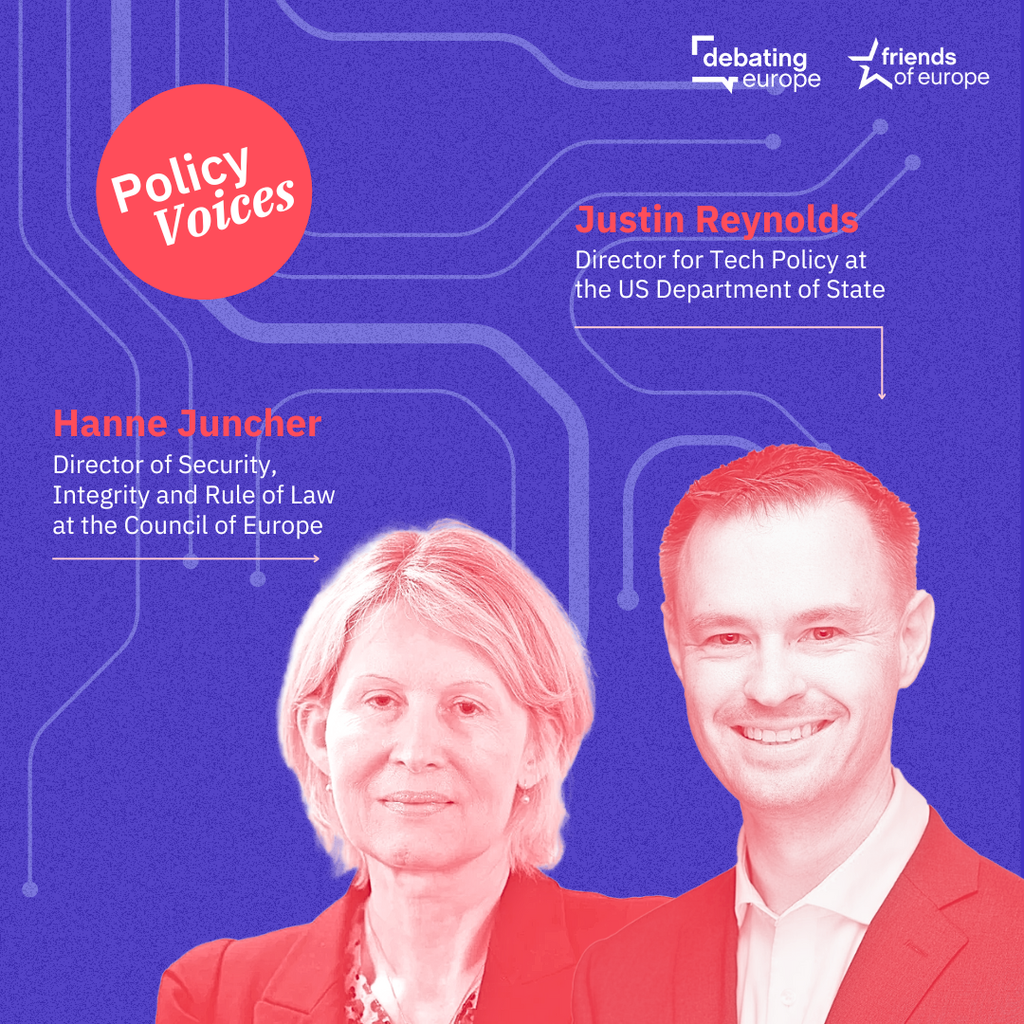A European agenda for space: resilience, security and sovereignty
Past event In person

- Area of Expertise
- Digital & Data Governance
Digital & Data Governance

Member of the European Parliament Committee on Industry, Research and Energy (ITRE), Trustee of Friends of Europe, and 2017 European Young Leader (EYL40)
Eva Maydell is Member of the Committee on the Internal Market and Consumer Protection, President of European Movement International and European Young Leader
Blockchain and Bitcoin have been the two hottest tech words in recent months, even by those outside of tech circles.
While the two sound similar, they serve entirely different purposes. Blockchain is a revolutionary digital technology that allows digital information to be distributed but not copied. Labelled by some as “the backbone of a new type of Internet”, it can be used for many kinds of applications. Bitcoin, on the other hand, is a cryptocurrency which, despite being the first and the most prominent of cryptocurrencies so far, is only one of the potential thousands of applications based on blockchain technology.
Most experts believe blockchain technology has the potential to revolutionise industries from the bottom-up and to create new business models such as a peer-to-peer communities. However, many of them are far less certain about the future of cryptocurrencies.
But why is this the case? To see why, we must dig into some of the potential risks cryptocurrencies face.
Over 90% of all cybersecurity breaches come as a result of human error – either due to unawareness of the risks or lack of sufficient digital skills. In this context, there are many concerns about our citizens being prepared for a digital currency with transactions based on cryptography. Moreover, a theft or a loss of the private key to one’s personal account can happen as a result of technological bugs, malware software or viruses.
Decisions by policymakers will influence whether cryptocurrencies develop into more than speculative prone commodities
Even though wallet applications provide different methods for securing the key, there is little doubt that when game-changing technologies such as Quantum computing become operational, they will be first employed with malicious intent by skilful cybercriminals before being used for high-level encryption for the mass client.
This is why we need to boost the digital skills of our citizens. If we want Europe to be at the forefront of the 4th Industrial Revolution and keep up its global competitiveness despite demographic changes, we need more skilled ICT specialists as well as an increase in our R&D funding. However, if we are to use cryptocurrencies, we need to eradicate the current level of 40% in digital skills illiteracy. We need ‘mass digital skills enlightenment’.
As we know from history, enlightenment stems from education. Improving the quality of teaching and equipping educators with the instruments and skills they need is key to offer an effective 21st Century learning environment and to promote digital literacy.
For this reason in 2015, together with partners from the business and NGO sectors, we created the platform called ‘Education Bulgaria 2030’. This stakeholder network is like no other in Europe. Some of Bulgaria’s biggest private companies, NGOs and prominent public figures work together towards a common vision of better, more relevant and digitally oriented education.
Reducing the digital skills gap requires wide, far-reaching efforts, however. That is why the news that more than one million Europeans took their first steps in coding during the EU Code Week in the span of just a few days in October 2017 deserves to be more widely celebrated.
But are cryptocurrencies digital money or commodities? While regulators all over the world are struggling to define cryptocurrencies, their total market valuation reached $420 billion in 2017 and is expected to hit $1 trillion in 2018. This is a lot of real money invested in an unregulated, risky and often speculative market. The potential consequences that a crash in such a big a market could trigger in our real economies could be problematic.
The relatively ”wild” state of the new market of cryptocurrencies and the lack of clear definition means that some regulators can experiment with measures that have not been tested in practice yet. For instance, in September 2017 China banned all Initial Coin Offerings (ICO) which companies use to create their own crypto-money and subsequently sell to the public. South Korea has also banned ICOs and anonymous trading, while Japan has introduced a licensing regime for cryptocurrency exchanges. On 25 January 2018, Russia introduced a draft law on the regulation of digital assets and ICOs, which outlines requirements for both projects that launch ICOs and for investors who wish to participate in the token sales.
Regulating cryptocurrency markets is a high-stakes, complicated, and fast-moving work in progress. The stakes are high because hundreds of billions of real dollars are on the line and any misjudged regulatory measure poses risks for market players and end customers.
Most experts believe blockchain technology has the potential to revolutionise industries from the bottom-up
Last but not least, cryptocurrencies face concerns about their sustainability. Unless cryptocurrencies gain mass public trust and support from central authorities, such as features and functions of money, they risk remaining simply commodities, such as precious metals, value of which can only be converted in euros or dollars.
If all Bitcoin miners resided in one country, it would be the 50th most energy consuming country in the world, ahead of developed countries such as Portugal, Singapore and Ireland. The problem with the extensive electricity consumption is embedded into the core of the currency because it has to be “mined” online. Together with the fact that the energy needed for one bitcoin transaction is enough for 500,000 money transactions by VISA or MasterCard, this raises further questions on the long-term sustainability of cryptocurrencies.
These issues, however, are risks faced by cryptocurrencies only, not the whole blockchain technology. While many believe that blockchain can be as disruptive as the foundation of the Internet itself, ten years after its launch, it is hardly used in a practical and consumer-oriented manner. Exceptions such as ReCheck, a Bulgarian start-up that allows consumers to register and manage their physical items on blockchain, are in the minority.
To stimulate blockchain initiatives within the European Union, the European Parliament and the European Commission set up the EU Blockchain Observatory and Forum at the beginning of 2018. It will serve as a knowledge and inspiration hub for all interested in the topic.
The reality is that decisions by policymakers will influence whether cryptocurrencies develop into more than speculative prone commodities, while blockchain’s faith will be determined by its ability to solve practical consumer and business problems.
Past event In person

Next event In person & livestreamed

Past event Online

Past event In person





Stay informed
We use cookies and similar technologies to adjust your preferences, analyze traffic and measure the effectiveness of our campaigns. Learn more about our privacy policy.